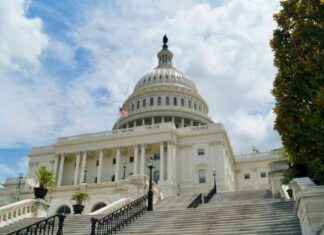MADRID, 6 Ene. (EUROPA PRESS) –
The main humanitarian coordinator of the United Nations, Martin Griffiths, has warned that the general humanitarian aid program for the Central Asian country could end up conditioned by the veto imposed by the Taliban against female education and against their performance as workers of non-governmental organizations.
The prohibition against humanitarian workers has meant that around 150 NGOs, key to the redistribution of aid –generally in cash, due to the United States sanctions against the fundamentalist movement– that the UN delivers to the country, have had to partially suspend their tasks and generated an alarm situation in the middle of winter that has led to Griffiths’ imminent visit to Afghanistan to discuss the situation with humanitarian officials.
Likewise, the United Nations flights that transport said aid have been partially suspended while waiting for the Taliban to rectify their conduct.
“Without women who work, we cannot keep our promises to the people, the main objective of humanitarian aid. It goes beyond being a matter of rights. It is a practical matter,” he explained in statements to the BBC.
In the same interview, Griffiths has qualified that the Taliban veto does not seem to be widespread, but it is widespread enough for the UN to be rethinking the aid program. “Right now there are places in the country where women seem to be able to work. But I don’t want to speculate what to do with a veto that is not being applied universally. Right now, I don’t see how we can continue with this situation,” she said.
In relation to a controversial message published last month by the Central Bank of Afghanistan about the alleged diversion of humanitarian funds, Griffiths has taken the opportunity to repudiate the useless “slanders” that the Taliban are undermining UN humanitarian aid by establishing agencies of bogus aid that then diverts aid for use by the fundamentalist movement.
Da Afghanistan Bank said it had received three separate cash injections of 40 million euros for “humanitarian aid”, on November 29, December 5 and December 6, with each delivery transferred directly “to a commercial bank”. , as he made known in a post on Twitter that raised doubts about the financial transparency of this process.
“The money is numbered, labeled and used for the purposes for which it is delivered. It is used by the humanitarian agencies of the UN system,” Griffiths said in response.
“And I do not agree,” he added, “with the idea that the Taliban depend on international financing for their survival” because “they are already raising money through taxes, through all kinds of sources and from their administration of Afghanistan”.






